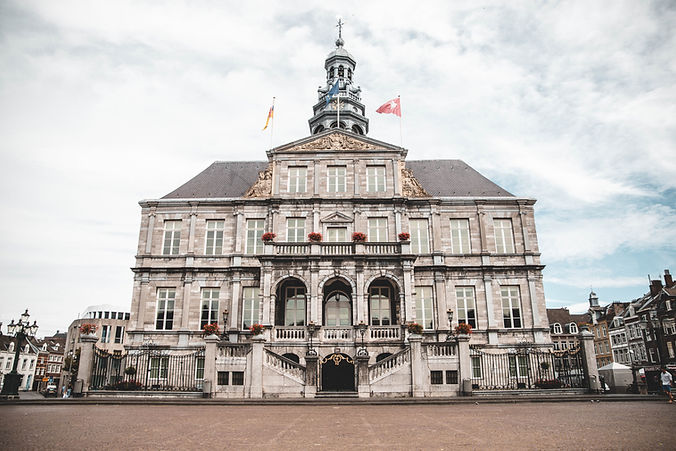Maastricht

Overview
Maastricht, a city of about 121,000 people, is located in the southern Netherlands, close the Belgian and German borders. Maastricht is known for its mediaeval architecture, cobblestone streets, and vibrant cultural scene. It also houses Maastricht University, which is known for its international orientation and problem-based learning approach. The city's ancient buildings, such as the Basilica of Saint Servatius and Vrijthof Square, along with its dynamic student life, make it an appealing option for students looking for a mix of tradition and contemporary.
Maastricht's
Story
Get to Know Maastricht
Maastricht, one of the Netherlands' oldest cities, is renowned for its mediaeval architecture, thriving cultural scene, and cosmopolitan spirit. Maastricht's cobblestone lanes, antique churches, and the renowned Maastricht University combine history and innovation. The city was instrumental in the founding of the European Union, representing unity and progress.
Historical Landmarks
Whether you are visiting Maastricht for a couple of hours or planning to start your full time studies here, check out three of the many historical landmarks in this city!
Basilica of Saint Servatius
The Basilica of Saint Servatius, which dates back to the sixth century, is a magnificent Romanesque basilica and pilgrimage centre. It contains the relics of Saint Servatius, the first bishop of Maastricht.

Vrijthof Square
Vrijthof Square is the city's most well-known square, surrounded by historical buildings, cafes, and the stunning Saint Jan's Church. It's a popular location for events and festivals.

Fort St.Pieter
Fort St. Pieter, built in the early eighteenth century, provides insight into Maastricht's military history. It offers panoramic views of both the city and the Maas River.

International Student Organisations
Check out some of the largest international student organisations in Maastricht!
ESN Maastricht
Erasmus Student Network (ESN) is a non-profit international student organisation. Their mission is to represent international students, thus providing opportunities for cultural understanding and self-development under the principle of Students Helping Students.
AIESEC
AIESEC is a global platform for young people to explore and develop their leadership potential. They are a non-partisan, independent, not-for-profit organisation run by students and recent graduates of institutions of higher education. Its members are interested in world issues, leadership and management.
Maastricht Student Council
The FSE Student Council was established as a core body of student representation at Maastricht University's Faculty of Science and Engineering (FSE) in the autumn of 2019. It is made up of student representatives to the many official entities of the faculty. Furthermore, the Student Council works closely with FSE student representatives on the departments' Management Teams and the University Council, as well as Student Councils and Student Assessors from the other five UM faculties.
Other Organisations of Interests
Check out and partake in events from these organisations in Maastricht!
TEFAF Maastricht
TEFAF Maastricht is widely recognised as the world's greatest market for fine art, antiques, and design, bringing together 7,000 years of art history in one location. TAlong with the usual categories of Old Master paintings, antiques, and classical antiquities, which account for around half of the fair, you'll find modern and contemporary art, photography, jewellery, 20th century design, and works on paper.
European Journalism Centre
The European Journalism Centre (EJC) foundation is an independent Dutch non-profit organisation situated in Maastricht, Netherlands. Their mission is to assist, improve, and develop journalism and media within the Council of Europe. They are a Centre for Community, Knowledge, and Collaboration with Partners and Funders, and believe that redefining journalism is critical.
EIPA Maastricht
EIPA's mission is to equip all professionals involved in EU public affairs with a combination of deep insights and practical knowledge about EU policies, with the ultimate goal of increasing their skills and competencies for efficient policy management. They have the support of EU Member States and the European Commission.






.jpeg)